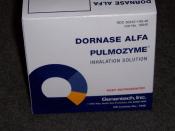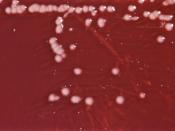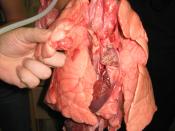Causes
Cystic fibrosis is a disease that comes from a difference in a person's genes. Any parent with the CF gene can pass it to their children. Although those parents may not actually have CF, they may carry the gene that could be passed on to their baby. When both parents are carriers of the CF gene, there is a one in four chance that their child will inherit the disease. If their child does not inherit the illness, the child could still be a carrier just like both of her parents, so she could pass on the CF gene when she has her own babies. And because CF is a disease that's passed through genes, it's most common in the groups of people that carry the CF gene. So there's a higher chance a person will have CF if it runs in the family.
Description
When someone has CF, her body has trouble transporting water and salt across the cells that make up the organs of the body, such as the lungs and the pancreas.
This causes the body's mucus (the slimy secretions that moisten and protect body tissues) to become extra thick and sticky. The mucus clogs the lungs and makes it difficult to breathe, and this can lead to infections, coughing, and wheezing. Cystic fibrosis also affects the pancreas (an organ that makes lots of proteins called hormones and enzymes) by not allowing it to deliver enzymes that digest food in the intestines. This is why many people with CF are often very thin and have trouble gaining weight. Kids with CF also may have bulky bowel movements and go more frequently.
How it can be Detected
The sweat test determines the amount of chloride in the sweat. There are no needles involved in the procedure. In...



Well Done
WEll done essay...covers all points of CF
0 out of 0 people found this comment useful.